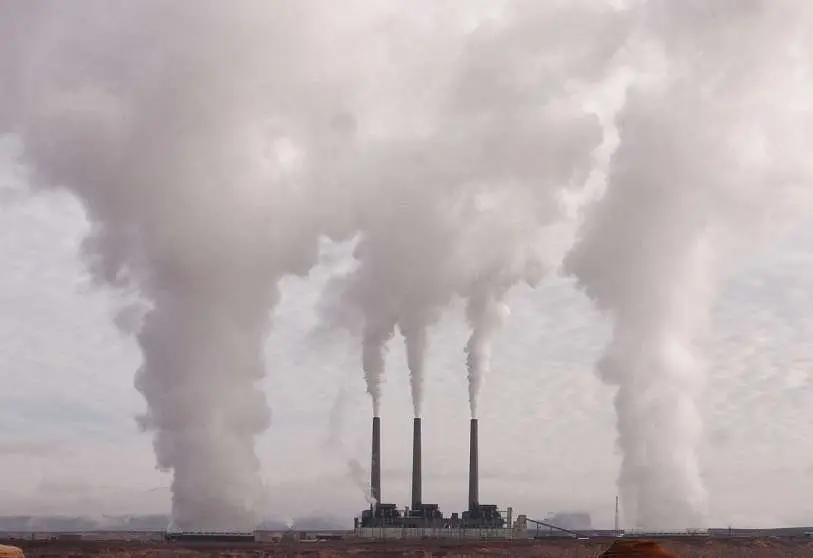We're not ready

The pandemic is no different from climate change and the demands to mitigate it by reducing emissions of polluting gases into the atmosphere. But also to the water in rivers, lakes, seas and oceans, because the ecosystem is a chain of links perfectly interconnected with each other, and that implies that, if one is broken or altered, the others will experience a metamorphosis.
There are living beings that depend on each other: human beings are at the tip of this biological interrelationship, in their vital vulnerability they are affected by climate change that makes the conditions more adverse for their survival and, if the environment is altered, new pathogens also emerge.
Human beings are weak in the face of a tsunami, an earthquake, a hurricane, a tornado or a virus that suddenly emerges from nowhere to disrupt people's daily lives. In the opinion of Gonzalo Delacámara, academic director of the Water Economy Forum, the current crisis of COVID-19 has highlighted the weaknesses in research in epidemiology and public health. And, above all, the fragility of the bridges in the dialogue between the scientific community and the political decision-makers; as well as between those who produce information in order to channel it to the citizens.
For Delacámara this neglect is equally palpable in terms of water resource management and adaptation to climate change; and even more so in the context of low budgets to investigate how CO2 impacts on rivers, lakes, seas and oceans. The coronavirus has only made evident (or sharpened) the persistent budget gaps over decades of having countries with priorities in defense rather than public health and even avoiding converting the current development model in another that is friendly to the environment, which is the same, be friendly to the health and life of human beings.
What if, instead of an emerging pandemic caused by an unknown pathogen, a major natural disaster were to occur that would abruptly affect hundreds of thousands of people? What would happen if thousands of people were to fall dead in the streets of cities suffocated by the altered air with high chemical components? What would be the protocol? Is the world prepared for such a misfortune?
Over the past three decades, the global scientific community has drawn attention to the pressing likelihood of a schism resulting from adverse conditions, caused by high temperatures and pollution.
In this regard, the Spanish Network for Sustainable Development (REDS) has held two conferences with international experts to discuss and share information about the situation of the impact of climate change on water, air quality and life in general. The American economist Jeffrey Sachs, participant in several of the meetings organized by REDS, has been warning of studies with red lines with global warming, leading humanity to the path of extinction.
The former director of the Earth Institute -until 2016- emphasizes that the extinction of living beings is progressively advancing and is happening before the rustic eyes of a mass of people unaware of the great problems. At least 17 species of animals have become extinct in the last 50 years and 15,000 species of plants are in danger of disappearing forever; they are half of the velvet plants on the globe.
If biodiversity is altered, it impacts on ecosystems and ends up weighing down organic life by causing the biological chain to break down, starting with the death of microorganisms to large species. A devastating phenomenon.
And then it points to rising levels of both fresh and salt water, as rivers overflow and seas gain ground on the land. National Geographic documents that satellite measurements show that over the past century sea levels have risen by 10 to 20 centimeters; worsening over the past 20 years at an annual rate of increase of 3.2 millimeters.
Sachs ventures the worst-case scenario: as temperatures rise, melting ice will occur more abruptly and the ocean will tend to move inland, to the point that it could end up swallowing up dozens of islands.
Who is prepared for such a tragedy? No one, the same speed of expansion of the coronavirus pandemic has demonstrated the weaknesses of rich and powerful countries, as well as less developed and poor countries; in short, it has shown the vulnerability of the system to respond to global challenges.
It has exposed the fact that the international bodies that were born out of the Second World War are overwhelmed by a lacerating reality, with societies that have a multitude of problems, sometimes lacking efficient mechanisms to effectively meet the needs of the population. In fact, they are ineffective in responding not only to a pandemic, but also to a major global economic crisis or to climate change and its dire consequences.

